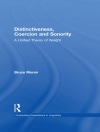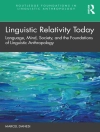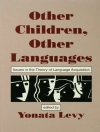This book examines psycholinguistic elements of irregular verb morphology in English, using two empirical studies of young language learners in Austria to make evidence-based didactic recommendations for classroom use. The author first provides an up-to-date overview of the so-called past tense debate, encompassing the last four decades of linguistic, psycholinguistic, and cognitive research, before presenting an in-depth discussion of the notion of irregular and semi-regular verbal morphology in both German and English, with a focus on vowel change and apophony. Turning to his original research, he applies generalised linear mixed model analyses as well as conditional inference trees to the behavioural data, avoiding common pitfalls that come with traditional ANOVAs in repeated measure designs, and discusses the concrete implications of the experimental results on second language acquisition and instructed EFL teaching, with a focus on Input Processing. This book will be essential reading for SLA and applied linguistics researchers as well as graduate and postgraduate students in cognitive linguistics, psycholinguistics, and language acquisition.
Cuprins
1 Introduction.- 2 Irregular Verb Morphology – Theoretical Accounts.- 3 Irregular Verb Morphology – L1 and L2 Cognitive Accounts.- 4 The Empirical Study.- 5 Implications for the Classroom.- 6 Conclusions and Limitations.
Despre autor
Thomas Wagner is H-S Professor for Applied Linguistics at the Pädagogische Hochschule Oberösterreich in Linz, Austria.












